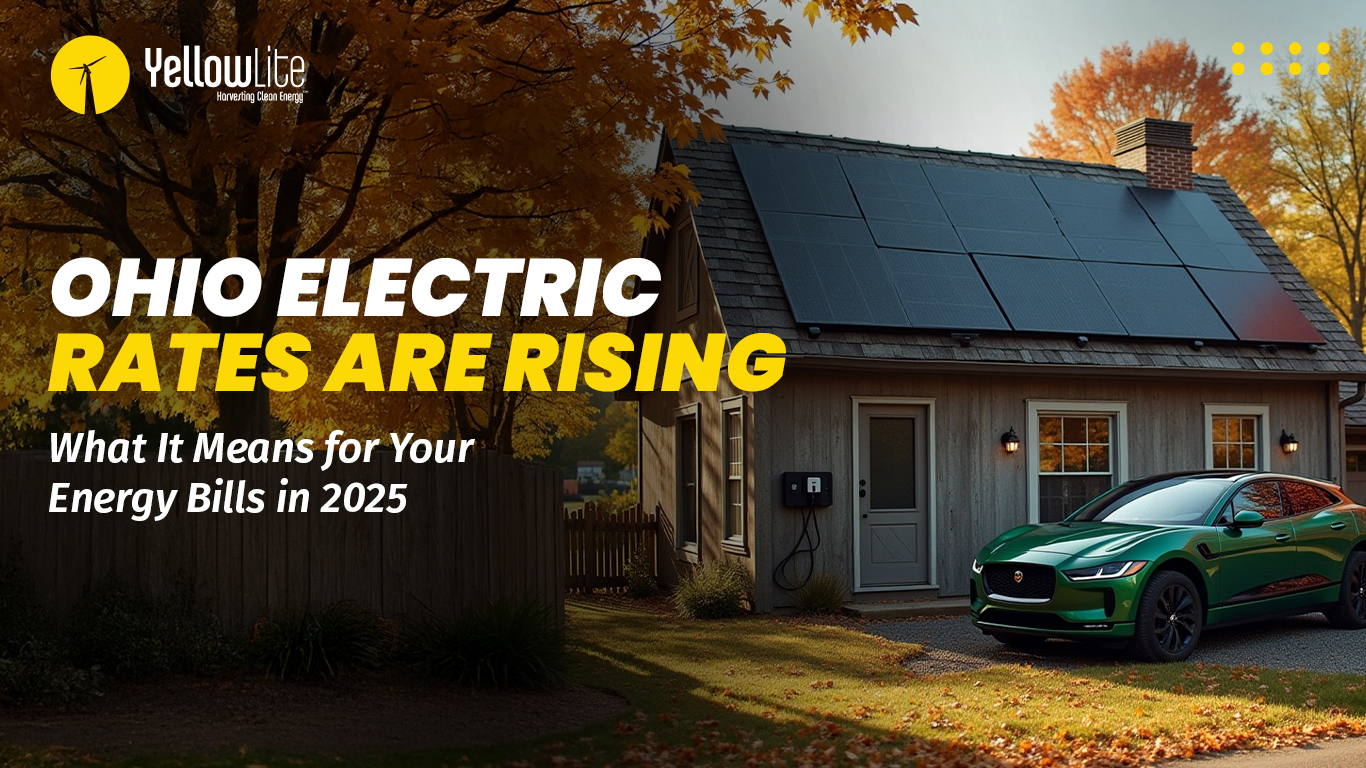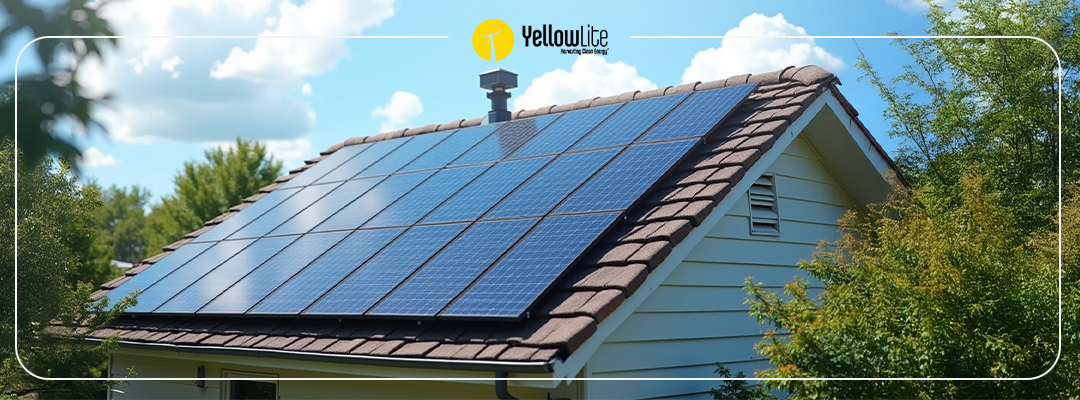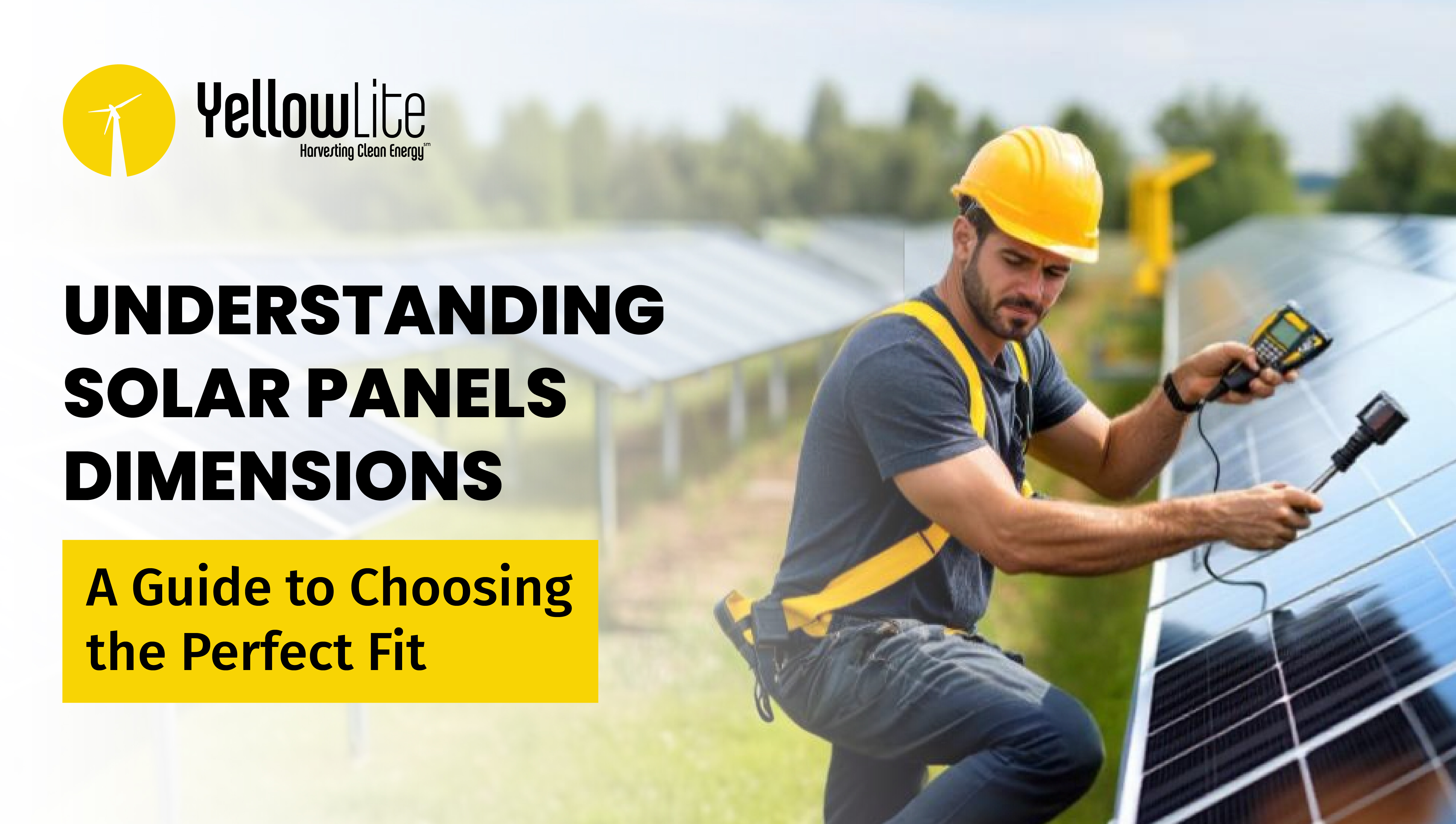How to select the Best Solar Panel
There is no “One-size-fits-all” answer for solar panels. The best quality solar panel will vary from situation to situation. There are a variety of factors involved, like budget, usage, and space, that determine your ideal choice. With the huge amount of options available in the solar market, it can get overwhelming to determine the best combination of panel type, size, efficiency, warranty, and quality.
Solar energy system installation is a big one-time investment. Diligent buyers are always on the look for solar manufacturers who offer high performance on a low budget. However, while focusing on one aspect, buyers overlook other important decision-making aspects.
Every Solar panel manufacturer has panels with slightly different wattages in the same category, making it impossible to compare wattage and efficiency. Choosing the right type of solar panel according to your individual needs is an important step in creating a money-saving and long-lasting solar energy system. We want to help you make the right choice and reap benefits for years to come.
Choosing Panel Type - Monocrystalline vs Polycrystalline
Choosing the type of solar panel will impact the overall performance of the solar energy system. The mainstream solar panels are monocrystalline and polycrystalline. The major difference between these two is the type of silicon cell used. A monocrystalline solar panel is manufactured from a single silicon crystal, while polycrystalline uses fragments of various silicon crystals melted together, which makes it less efficient and less durable.
Monocrystalline panels are the most efficient, but also more expensive than other options. The composition of mono cells is purer because it is made from a single silicon crystal ingot. This allows it to be more heat resistant and produce higher per watt electricity than its counterpart poly cells.
As explained earlier, the solar investment is always a one-time investment allowing consumers to reap benefits for 20+ years. It is always recommended to go for good quality monocrystalline panels because they offer higher efficiency and lower degradation over the years. This means you can produce more electricity with fewer panels.
Pleasing your Aesthetic Sense: The Backsheet and Frame
The back sheet color and frame type of solar panels also affect the price and aesthetic sense of panels. Backsheet is the base of the panel on which various silicon cells are placed. Having a back sheet in black creates a more uniform look, blending the panels perfectly with the roof. However, black absorbs heat faster, so panels with black back sheets tend to get more hot in the summer, reducing efficiency.
The solar panel frames are also available in silver and black. Black frame panels add more aesthetic sense in the panels but will also cost more. If you are worried about how your solar panels will look artistically on your roof, you should choose the black frame color.
Solar Panel Size: 60-Cell vs. 72-Cell
Currently, there is a wide variety of solar panel sizes available in the market. The most popular of them are 60-cell and 72-cell panels. The cell refers to the number of small crystalline silicon wafers in a single solar panel. 60-cell solar panels are comparatively smaller and recommended for tight places on small household roofs.
The recommendation would vary according to the location, angle, and dimensions of the roof. Due to the larger size, 72-cell panels are more economical because they produce more electricity per panel.
Panel Production: Output Rating and Efficiency
There is no simple way to analyze and choose the perfect solar panel. Even the same type of solar panels from different manufacturers have different outputs and efficiency ratings.
Output rating is the three-digit wattage written along with the panel model. Most of the panels have wattages between 250 watts to 400 watts. Although there are panels that now exceed 600 watts, with manufacturers now focusing on higher wattage panels. Higher wattage solar panels mean a higher price tag, but that won't offset your budget because you will fulfill your energy needs in fewer panels.
The other important part is the efficiency of solar panels. Efficiency is the percentage of electricity a solar panel produces from the energy it receives from the sun. It simply means that the more efficient a solar panel is, the more kilowatt-hours of electricity it will produce from its wattage.
So, while selecting the ideal solar panel, always keep a constant eye on its efficiency rating - the higher the better.
Manufacturer Warranty
The warranty offered by manufacturers is an important indicator of overall panel quality. The top-tier solar panel manufacturers offer warranties of over 25 to 30 years. Under the warranty section, there are two types of warranties offered: Performance and product warranty. While finalizing a solar manufacturer, also consider how robust their warranty claims are, because you do not want to be stuck with a faulty panel and wait months for a simple warranty claim.
Verdict
As discussed above, solar panel selection is not an easy feat. You have to swim through troubled waters and get the best solar panel out there. Hiring a reliable solar installer will ease most of your troubles, as their experience in the industry will help you select the best product for your individual needs.



